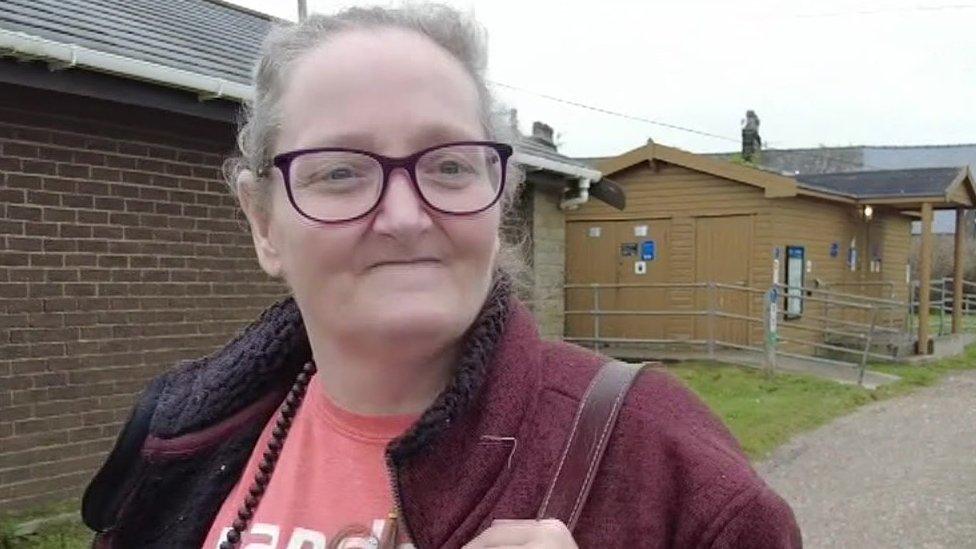Universal Credit: 'I regularly eat cereal for a main evening meal'
- Published
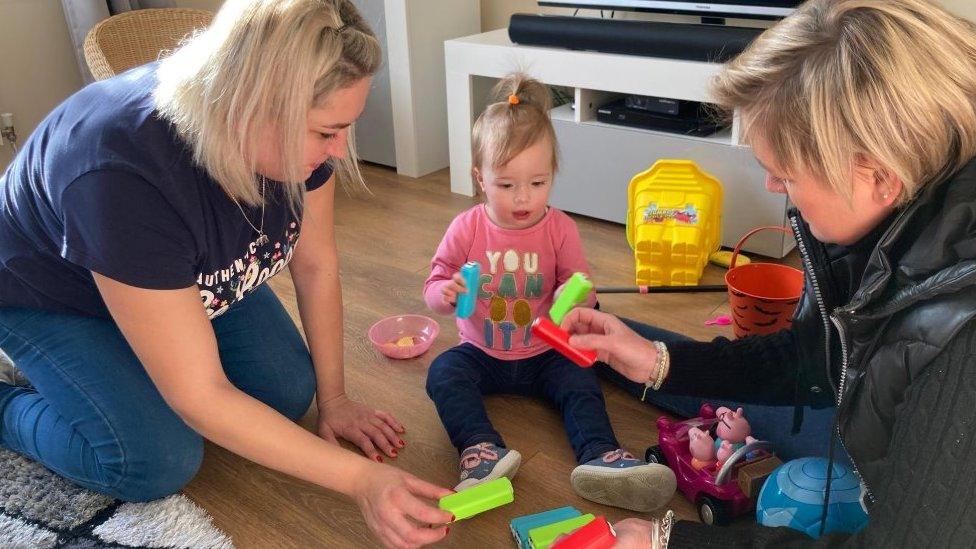
Natalia, pictured with one-year-old Chloe, is supported by Kirsty Massie from Action for Children
Working parents on Universal Credit plan to cut back on heating and eating to meet the cost of living in the run-up to Christmas, a charity said.
Action for Children surveyed 2,500 UK working parents and found energy bills and prices in shops were the main concerns in the East of England.
Of these, 24% said they were likely to replace main meals with cereal.
The Department for Work and Pensions said it was "committed to supporting families and people in need".
Kirsty Massie, support worker for Action for Children in Norfolk, said: "Day in, day out we're seeing families struggling to make ends meet."
She supports Natalia, 35, who said she had to move out of her home a few weeks into the first lockdown after splitting up with the father of her baby daughter, Chloe.
Accommodation was found with help from Action for Children, but Natalia struggled to afford the basics.
'Only heat the living room'
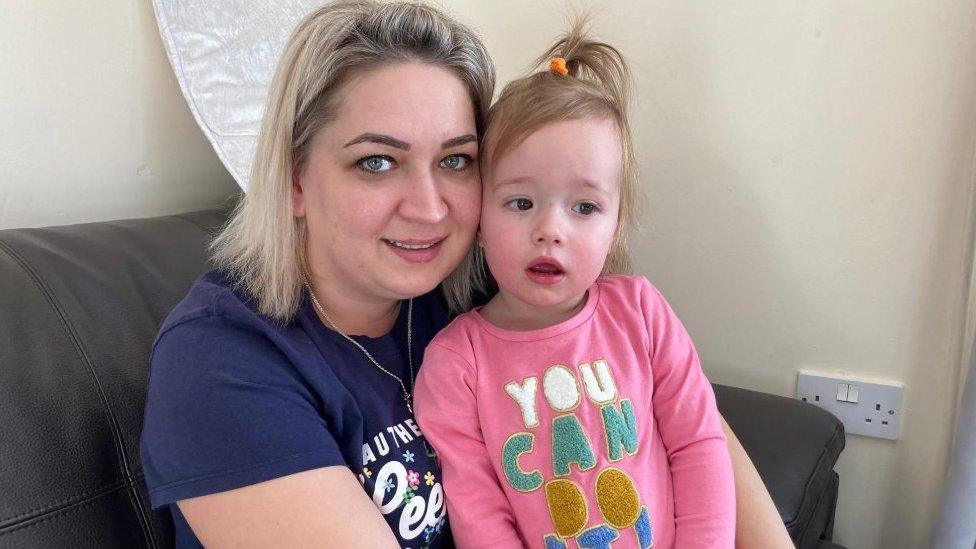
Natalia returned to work in March but still uses a foodbank each week
Her pay from her factory job was reduced while on maternity leave and, without a car, she said she had no option but to buy more expensive food from a local shop.
Natalia, who has since returned to work, said: "I'm still using a foodbank every week to make sure Chloe has enough to eat.
"I often go without food to make sure she has enough, and I regularly eat cereal for a main evening meal.
"I'm really worried about the bills going up.
"I'm only turning on the heating in the living room now it's got colder - I just wrap Chloe and me up in more clothes."
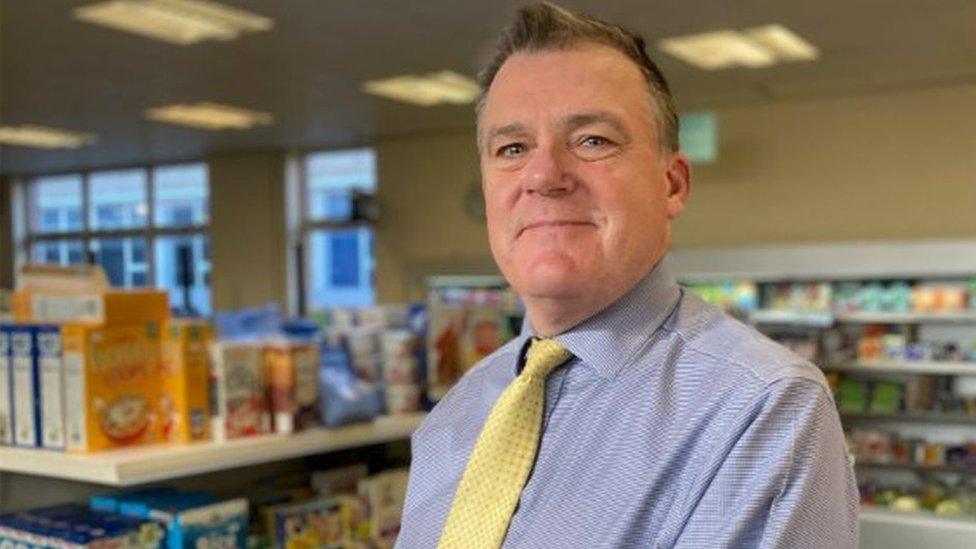
Nik Chapman, chief executive of the Charles Burrell Centre in Thetford, said people faced difficult choices
The Charles Burrell Centre, in Thetford, has about 1,200 customers and helps with clothes and food, with prices up to 60% cheaper than the recommended retail price.
Much of the stock is donated by businesses and supermarkets - and it's the first store of its kind in East Anglia.
Nik Chapman, chief executive of the centre, said: "There are many people who just struggling to balance the books, pay the bills.
"And one small bill the wrong way will push them into crisis... a lot of people are having to make some difficult choices."
Action for Children said many families faced a bleak Christmas after a £20 uplift in Universal Credit ended at the beginning of October.
The poll found that 80% of respondents were concerned about heating bills, with 74% worried about rising prices.
Thirty-eight per cent said they were likely to cut back on heating, and 30% would skip meals to save on energy costs.
'Parents go without'
Some 26% also said they were likely to give their children basic essentials for a main Christmas present, such as a winter coat or school shoes, while one in five said they were likely to need help from a foodbank.
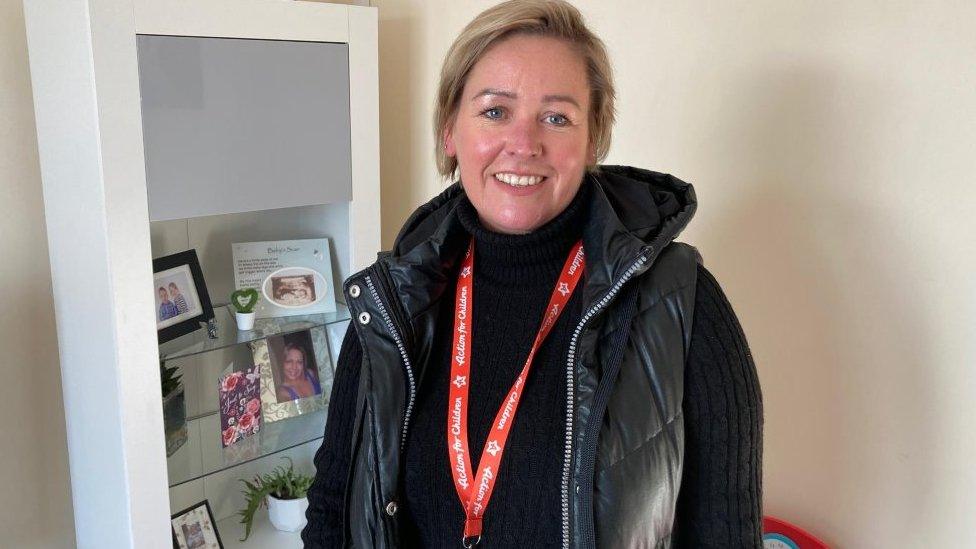
Kirsty Massie said Christmas was a worry for many parents
Ms Massie said: "Parents are worried about Christmas but more concerned about how they're going to provide for their children with rising costs.
"They feel they're letting their children down and sometimes it's more about making sure their child has what they need, but then they themselves go without."
Director of policy and campaigns at Action for Children, Imran Hussain, appealed for donations from the public.
"Our frontline workers see the impact the pandemic and cost of living crisis is having on children and families who are under pressure every day," he said.
"We can make sure they have the basics, like hot meals and proper winter clothes and offer emergency support to keep homes warm and help families pay the bills."
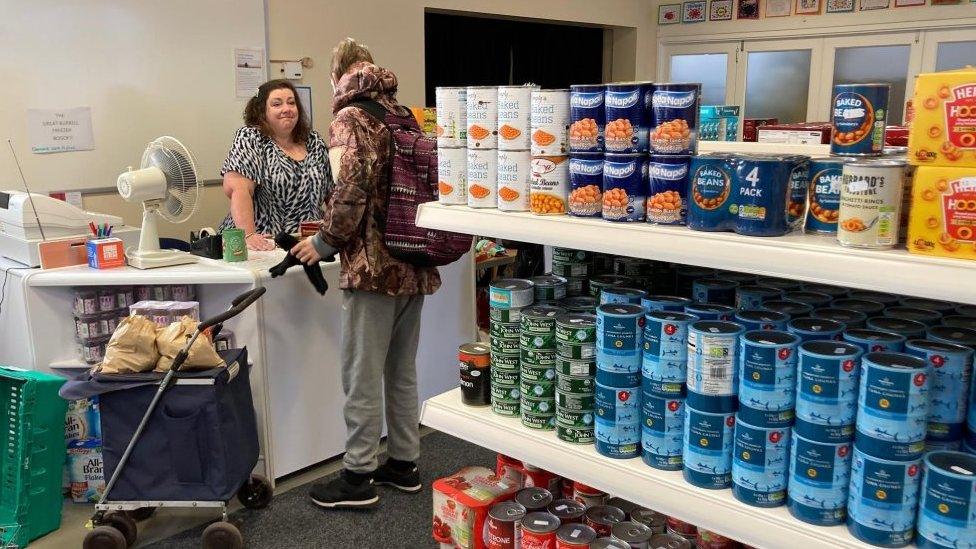
About 1,200 people use the Charles Burrell Centre at Thetford
A spokesman for the Department for Work and Pensions said: "This government is committed to supporting families and people in need, we have provided billions of additional welfare support through the pandemic and continue to do so.
"Work is the best route out of poverty and the changes we have made to Universal Credit will see nearly two million working claimants better off by around £1,000 a year.
"The most vulnerable, including those who can't work, can get additional benefits, and help with essential costs is available through our new £500m support fund."

Find BBC News: East of England on Facebook, external, Instagram, external and Twitter, external. If you have a story suggestion email eastofenglandnews@bbc.co.uk, external
Related topics
- Published6 November 2021
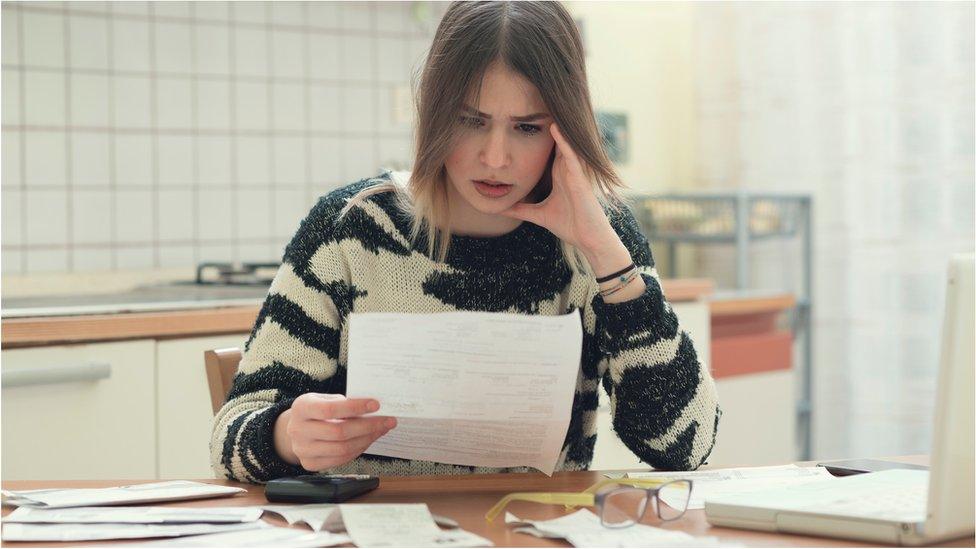
- Published15 October 2021
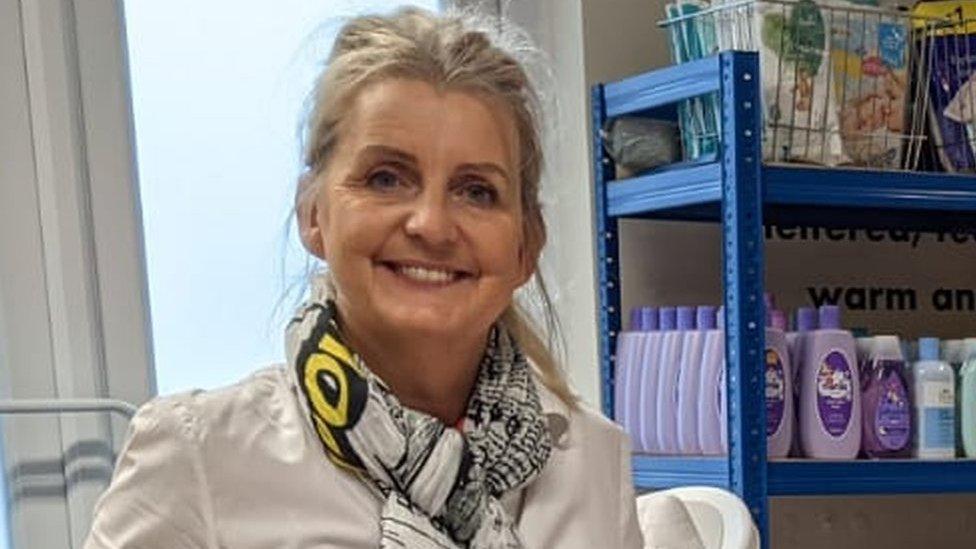
- Published29 September 2021
